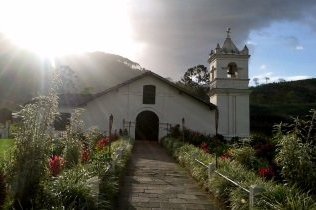Costa Rica
Church of Orosi
Site Info
Official Information
- Full Name
- Church of Orosi (ID: 9756)
- Country
- Costa Rica
- Status
-
Removed from tentative list 1980
Site history
History of Church of Orosi
- 1980: Rejected
- .
- 1980: Added to Tentative List
- Added to tentative list
- 1980: Removed from Tentative List
- Removed from tentative list
- Type
- None
- Criteria
Links
All Links
No links available.
Community Information
Travel Information
Recent Connections
News
No news.
Recent Visitors
Visitors of Church of Orosi
Community Reviews
Show full reviews
When the Spaniards discovered the territory of modern day Costa Rica, they initially preferred to stay in the coast. When they decided to penetrate into the rugged, mountainous territory, they entered the Reventazón River valley into what is now the province of Cartago. There, they found a series of indigenous towns, as Uxarrací (later Ujarrás) and the town of cacique Xarcopa that reigned from the town of Orosi. When the Spaniards colonized the area, they established in these areas the indigenous towns, known as encomiendas, and in them, a Franciscan monastery and a church in from of a town square or plaza, in a pattern repeated throughout the colony. This was the case of Orosi, which rapidly excelled in its agriculture, and managed to upgrade the religious buildings in 1767 from organic materials and a straw roof, to adobe buildings with a tiled roof.
Today, besides the church, its imposing bell tower and its adjacent monastery, there is little left of that society or the colonial buildings, Orosi has become a town dedicated to export agricultural products, and services, but even when nothing is left from the dwellings, the form of the town, perching from the neighboring elevations into the course of Grande de Orosi river give it a picturesque nature that almost no town in the country has. As said about the Ruins of Ujarrás, their proximity and location inside a valley of great visual, cultural and natural interest, with its colonial remains, terraced fields, rivers, lagoon and variety …
Keep reading 0 comments